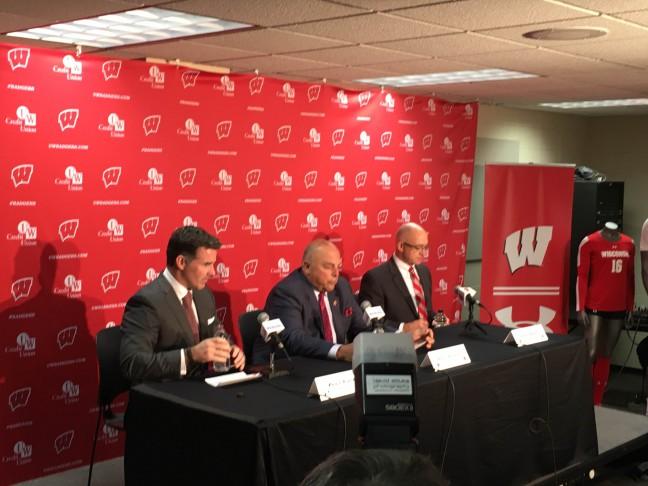While the University of Wisconsin’s overall athletic performance has stayed roughly the same, if not better than it was in 2011, the economic impact their athletic program has had on the state in that time has fallen by more than one-third.
While construction spending by the athletic department has decreased since 2011, according to a UW official, this decrease only accounts for some of the drop.
The economic impact study — produced by Philadelphia consulting firm Econsult Solutions, Inc. — also showed that Badgers sports support 4,480 jobs in Wisconsin, another decrease compared to 2011.
Even with the decrease, there shouldn’t be any reason to worry, UW Senior Associate Athletic Director Justin Doherty told the Wisconsin State Journal.
The economic impact report showed a current average annual income of $610 million, compared to $970 million in 2011. Adjusted for today’s inflation, the 2011 report showed an impact of $1.1 billion along with 8,853 jobs.
Both of these numbers represent drastic changes overall, but Doherty said much of the change here can be attributed to the planned costs for the construction of LaBahn Arena, which opened in 2012, and the Stephen M. Bennett Student-Athlete Performance Center, which opened in 2014.
The 2019 report did not factor in upcoming major projects at the Kohl Center and Camp Randall Stadium.
But even with those projects taken out of the picture, there still seems to be a major discrepancy. For example, why have the jobs been cut nearly in half?
Doherty said that can be attributed to Econsult Solutions taking a conservative approach in their report this year. This year’s data also showed a $395 million annual impact for Madison and nearly 2 million visitors to the city per year.
Overall, the report estimated that tourism from UW sporting events results in $203 million in spending across the state. Athletic Director Barry Alvarez contributed to a news release after the report became public.
“The fact that Badgers Athletics has such an impact on our city, region and state is a great source of pride for us,” Alvarez said. “Our athletic program is woven into the fabric of not only the Madison area, but all over our great state.”
Wisconsin football is a major driving force of revenue for the city of Madison and the state of Wisconsin, drawing over 70,000 fans per game.
Each Badger home football game contributes $16 million to the Wisconsin economy, but they still averaged 15,000 no-shows per game last season, their lowest attendance rate since at least 2006, when UW began keeping track of total ticket scans per game.
This drop in attendance may be one of many factors to blame for the decreased revenue in 2019, but Doherty stated the report won’t have large direct impact on how UW manages its athletics operations.
“We can say a football weekend at Wisconsin is a big economic driver or really has a big impact on the area or the city or the region or the state, but doing this project puts numbers to it that you can point to and hang your hat on,” Doherty said.
The budget for UW Athletics has increased consistently over the last several years, sitting at $159.4 million for the 2019-20 school year, up 11% from last year and 61% from five years ago. In all, the UW Athletic Department has more than 900 athletes in 23 sports, with nearly 400 full-time staff members.
Wisconsin’s athletic department will continue to move forward with numerous projects at their sports facilities, including renovations of Camp Randall, the Kohl Center and the UW Field House.
The master plan also includes updates at the McClimon Track/Soccer Complex and Nielsen Tennis Stadium, along with the new Nicholas Recreation Center which is being partially funded by the revenue generated by the UW Athletic Department.
Even with UW Athletics having a decreased economic impact compared to the 2011 report, it is safe to say that UW Athletics is thriving under Barry Alvarez, who has brought Wisconsin sports back to prominence since taking over as head coach of the football team in 1990.


